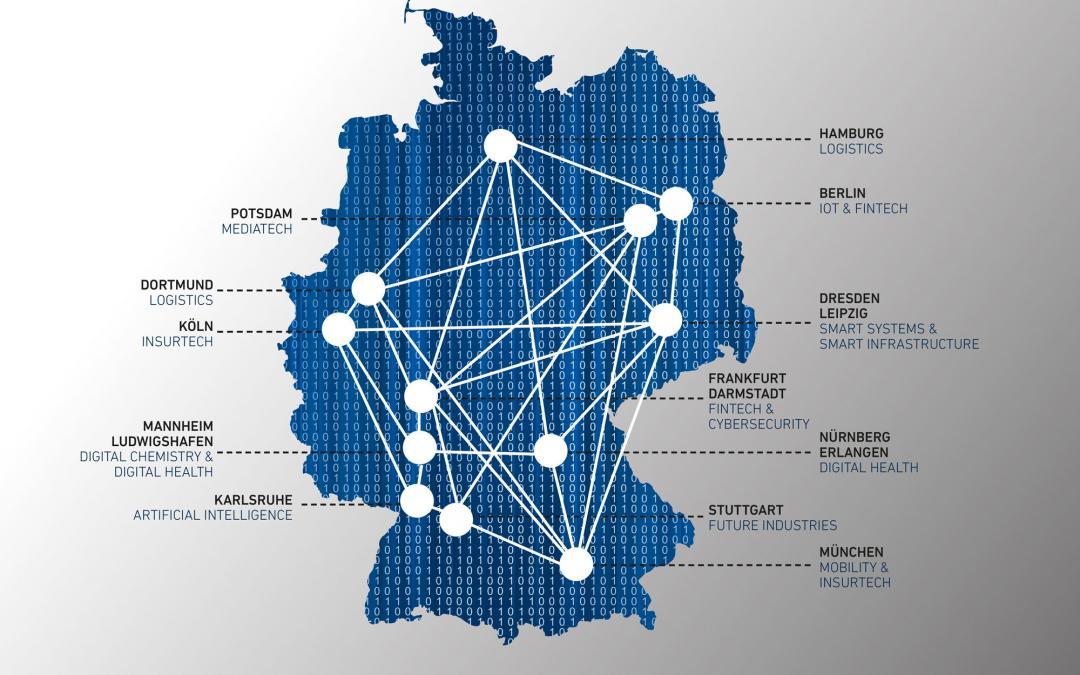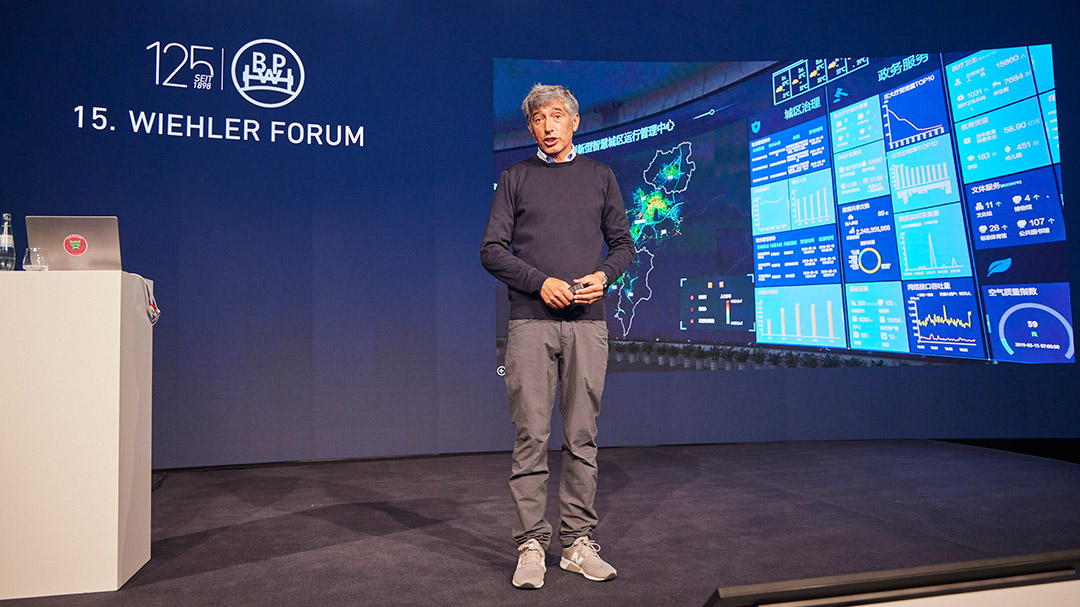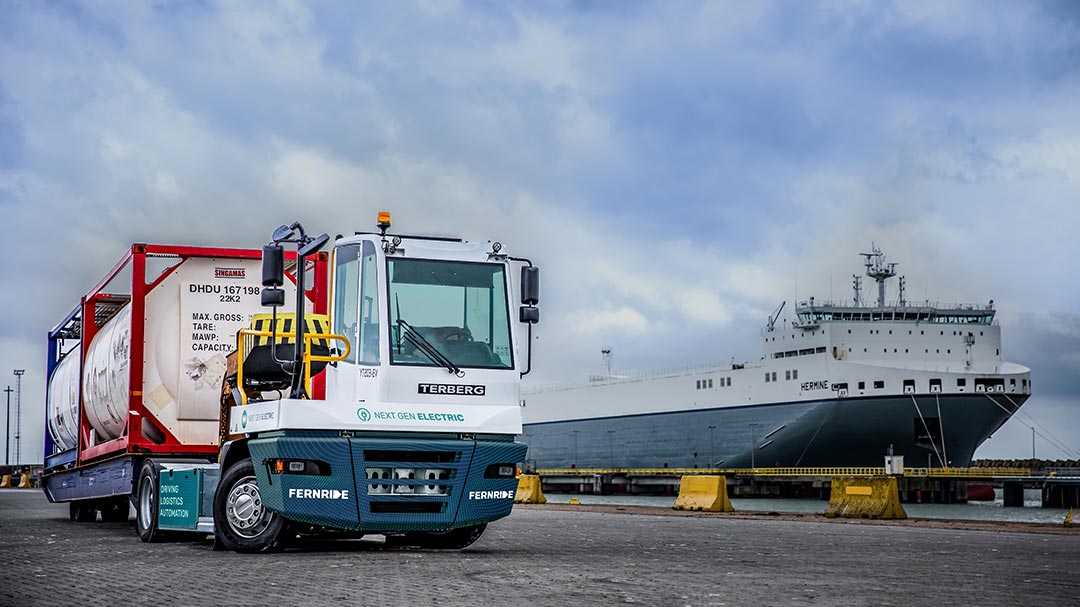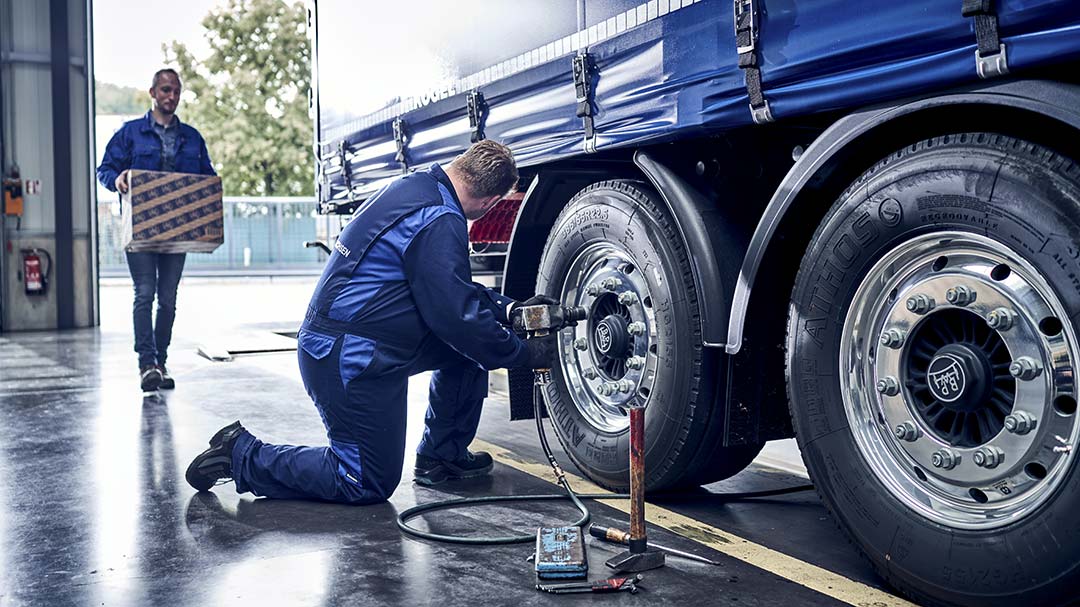Reading time approx. 4 minutes
Text: Juliane Gringer
Photos: iStock – AF-studio, Dierk Kruse, BPW
Digital Hubs Germany is an initiative launched by the Federal Ministry for Economic Affairs and Energy and the industry association Bitkom. Its ambition is to trigger international awareness and appeal. It is a framework within which companies can interact and work together with business start-ups.
The hubs are project offices where global players, SMEs, small businesses and start-ups can cooperate and develop their ideas together. Digital Hubs Germany (de:hub), hosted by the German economics ministry in collaboration with the Federal Association for Information Technology (Bitkom), established twelve such hub locations throughout Germany by 2017. Two of these, in Dortmund and Hamburg, are focussing on logistical issues. Its goal is to drive developments in the logistics industry. The hub in Dortmund is being operated in close cooperation with the Fraunhofer Institute for Material Flow and Logistics (IML). In Hamburg the hub sponsors are the City of Hamburg’s business authority and logistics initiative.
Shaping transformation
“By broadcasting the digital message, we want the de:hub initiative to showcase the existence in Germany of multiple centres of digital excellence and innovation,” explains Julia Miosga, head of Bitkom’s trade and logistics section. We look forward to the emergence of an open digital ecosystem in which industry giants, SMEs and business start-ups join forces with HE institutions, research facilities and investors to shape the country’s digital transformation. Alongside the two hubs for logistics, three others have already been established. Munich’s priority is mobility, Frankfurt’s is financial technologies, and Berlin’s dual interests are the internet of things and the digitisation of the financial sector.
Each hub is to function as a central port of call giving unbureaucratic and direct access to a wealth of knowledge and contacts. “For someone who wants to test autonomous shipping ideas, for instance, the Hamburg hub is able to forge links with the relevant experts and skills,” says Miosga. Employees of companies with an interest in the field can work alongside each other in the project offices and share their knowledge and approaches to problem solving.
Piloting new technologies
“Everyone is welcome in the digital hubs,” comments Miosga. The tenants can also use the “maker spaces” that are being provided specifically for the de:hub. These areas are intended for putting innovative devices, such as drones and 3D printers, through their paces. Interested parties and collaborators from the fields of science and research are invited to join these projects. The centres developed a programme of events and guided tours, many of which are open to the public.
»We are seeking to consolidate financial strengths and human resources.«
Julia Miosga, head of Bitkom’s trade and logistics section
The digital hubs are not seeking to compete with existing networks, but eager to offer mutual support and investigate opportunities together. This aspiration is reflected in the integration of existing projects. “We are seeking to consolidate financial strengths and human resources,” explains Miosga. Bitkom, whose presiding committee spawned the idea, was the driving force behind the hubs. She continues, “The desire to interconnect was existing, as demonstrated by the enthusiastic response of the economics ministry, the state governments, companies in the relevant industries, and business start-ups.“
Integrating SMEs
The initiative was launched at the end of 2016 together with the Federal Ministry for Economic Affairs and Energy. It is still very popular – many businesses are approaching the hubs themselves and expressing an interest in participating. “We certainly haven’t needed to persuade anyone to take part,” remarks Miosga, while stressing the importance of getting SMEs on board as well, “Many companies have established strong positions in niche segments, where they enjoy tremendous success. Their knowledge can inspire others, and they can also benefit themselves from the input of businesses operating in entirely different markets.” Bitkom has published a ten-step guide (in German) explaining how SMEs can embrace the digital future. “We are calling on businesses to formulate their own digital strategies and broaden their horizons,” remarks Miosga. She says they should seek to build digital networks, make clever use of their data, and cooperate with companies that are not direct customers or business partners. “And if their core business is not digital and they lack the necessary resources, a start-up capable of filling the gaps probably exists already.” The digital hub is a forum where businesses can get to know these start-ups directly and without any complications. Together, they can develop innovative solutions and new business models.
Finding support
Getting to grips with innovation in the transport industry and building it into an established model represents a major challenge for many companies. “3D printing, for example, will radically change the transport industry. Manufacturers will become dealers and the trading environment will be digitised,” claims Miosga. “But many entrepreneurs are unsure about how best to respond to such trends. It’s important for them to know that they can’t expect or need to be experts in every field. Being aware of the trends and obtaining the necessary support is key.” Digital hubs are the ideal places to look.
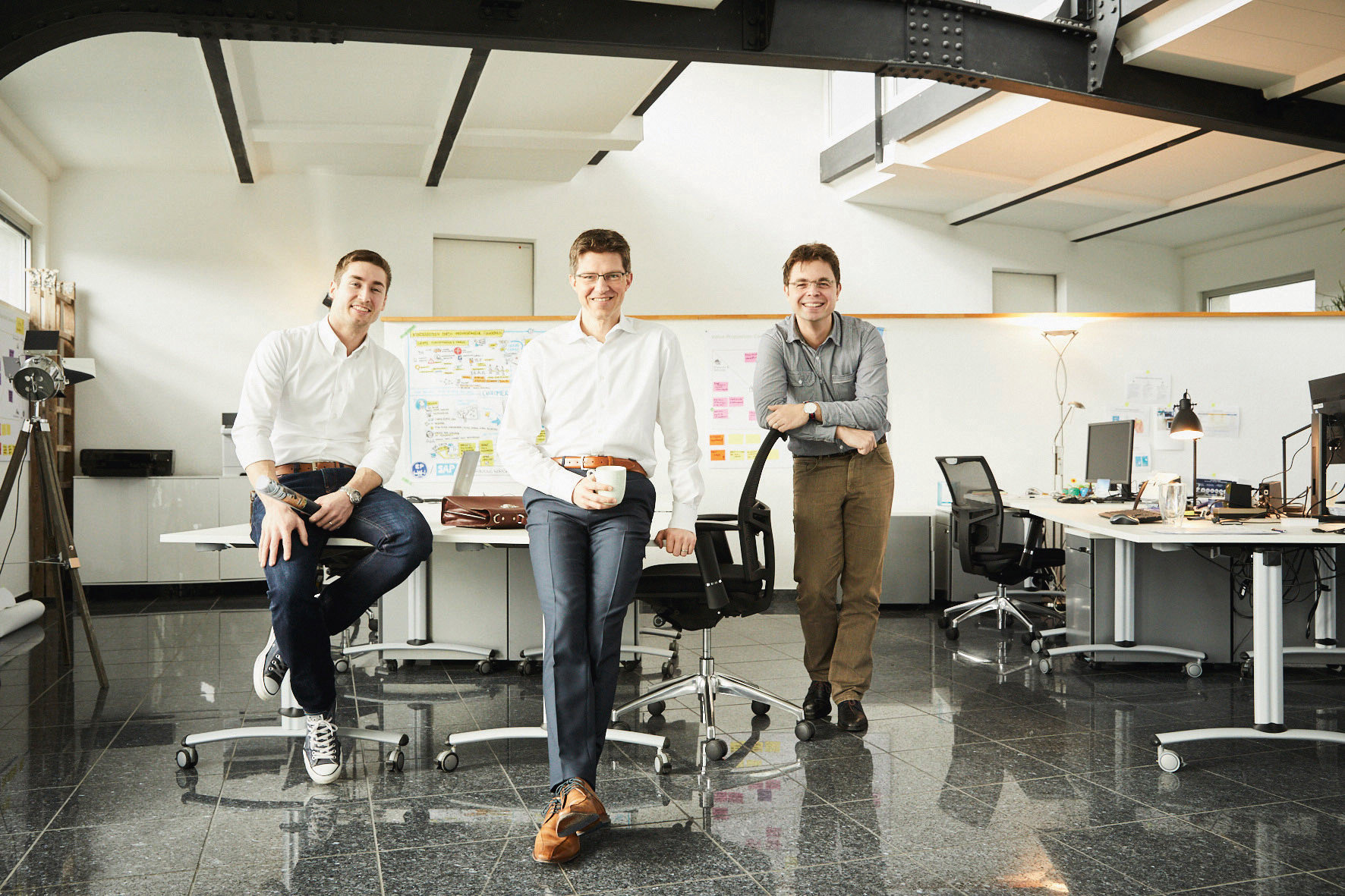
A modern think tank – Marcus Sassenrath, Alexander Lutze and David Huperz (from left to right) in the Innovation Lab of BPW.
BPW’s own Innovation Lab
With its in-house Innovation Lab, BPW has created a space for developing custom solutions to make transport processes more efficient and more reliable. ‘We want to create transparency throughout the logistics chain,’ explains Marcus Sassenrath, who is responsible for IT and digital strategy in the BPW Group as CDO. The Innovation Lab is based in 250 square metres of modern office space in a former industrial complex in the German city of Siegburg. The team there works with customers to investigate specific logistics scenarios and then develops totally new solutions for these, drawing on the opportunities of digitalisation. In particular, advances in sensors, data storage and analysis of data are enabling much more cost-effective approaches and even completely new solutions.
The Innovation Lab chooses to focus on development projects. Summarising the policy, Sassenrath says, “We are not setting out to build the latest in a long line of giant Supercloud platforms, but wish to learn from our partners and customers. We are looking for new solutions to problems and thus seeking to spearhead the trend towards digitisation in logistics together.” He describes the process as being very open, “We want to serve as a beacon, piercing the fog that enshrouds so many businesses as regards digitisation. Success will follow only if the key problems are addressed. We need to experiment in order to establish which systems are effective and economically beneficial.”

